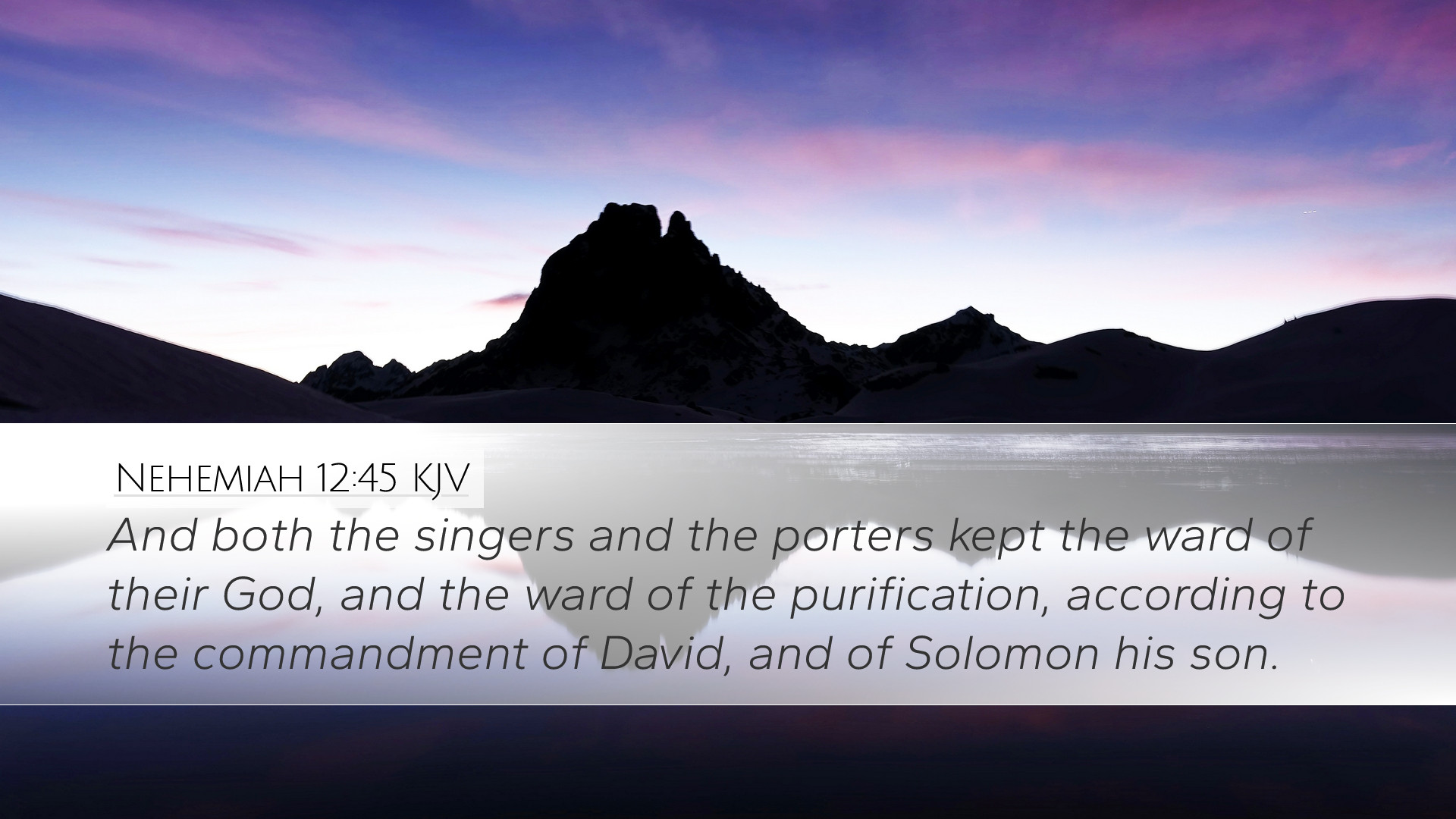Commentary on Nehemiah 12:45
Nehemiah 12:45 states, "And they kept the ward of their God, and the ward of the purification, and the singers and the porters, according to the commandment of David, and of Solomon his son."
This verse encapsulates the organization and dedication of the Levitical priests and other temple servants, highlighting their vital role in maintaining the sanctity and order of worship in the restored community of Jerusalem. It reflects both the historical and theological ramifications of their roles.
Historical Context
The restoration of Jerusalem and its temple was a significant event for the Jewish community after their return from Babylonian captivity. Nehemiah, with the support of Ezra and other leaders, worked diligently to restore not only the physical structures but also the spiritual and communal life of the people.
Commentators like Matthew Henry point out that keeping the ward of service was essential for the continuity of worship, essential for fulfilling God’s covenant with His people. The roles of singers and porters were integral to the ceremonial practices that shaped the identity and worship of Israel.
Theological Significance
This passage also highlights the importance of order and purity in the worship of God. Albert Barnes emphasizes that the phrase "ward of their God" reflects a responsibility not just to perform duties but to maintain a relationship with God through their service. Each member, whether priest, singer, or porter, had a divinely appointed role which demonstrated their commitment to God’s work.
Adam Clarke expands on this by noting the connection to Davidic worship, which was characterized by organized praise and dedicated service. The command of David and Solomon underscores a legacy of worship that emphasizes consistency and fidelity to God's requirements throughout generations.
Roles and Responsibilities
- Ward of their God:
This denotes the priests’ function in safeguarding the temple and its practices, ensuring that every aspect of service adhered to God’s instructions.
- Ward of the purification:
The Levites had specific duties related to ritual purity, emphasizing the holiness of worship and the need for believers to approach God with a clean heart.
- Singers and porters:
The singers were responsible for leading the congregation in worship, reflecting the joy and communal aspect of praise, while porters gatekept the temple, symbolizing the necessity of barriers against impurity.
Lessons for Today’s Church
From Nehemiah 12:45, modern-day churches can glean several lessons pertaining to worship and community life:
- Importance of organization in worship:
Just as Nehemiah organized the temple service, churches today benefit from structured leadership and planning to facilitate meaningful worship.
- Role of community:
Everyone in the congregation has a part to play, whether as leaders, musicians, or volunteers, demonstrating active participation in the body of Christ.
- The priority of holiness:
Similar to the ancient practices of purification, contemporary worship should emphasize the need for spiritual readiness when approaching God.
Conclusion
Nehemiah 12:45 reminds us of the sacredness of worship and the roles each member plays in maintaining the order and reverence that God desires. The insights drawn from public domain commentaries illuminate the passage's significance, not just as historical record but as a living guide for today’s ecclesiastical settings.


